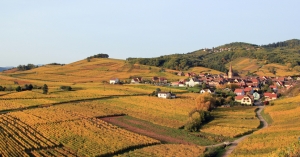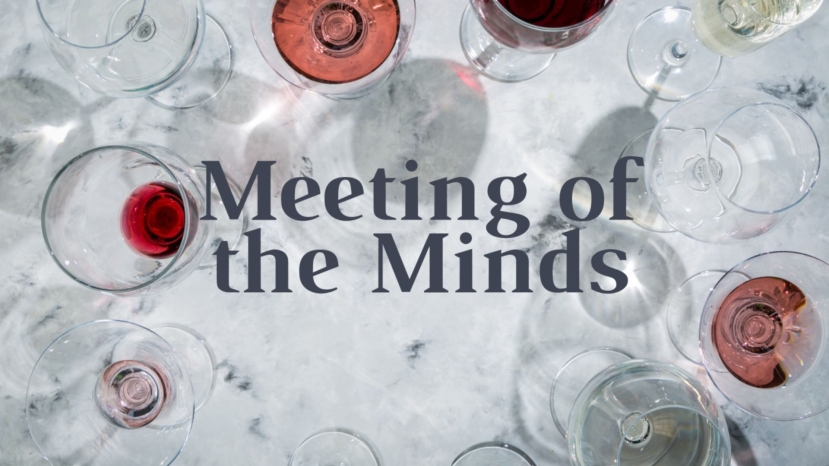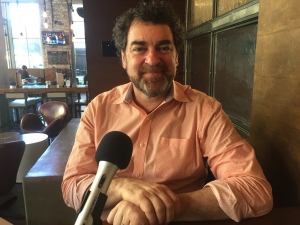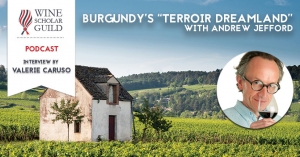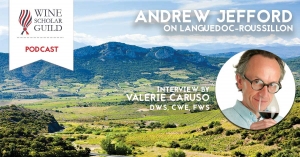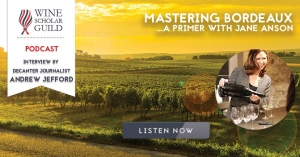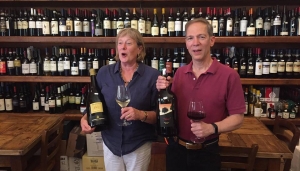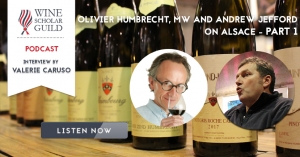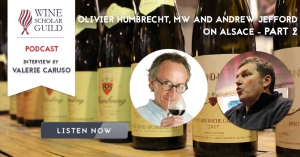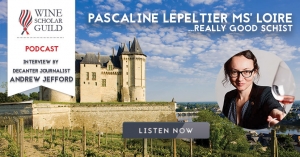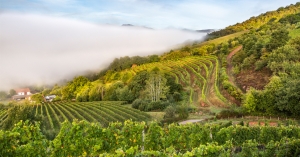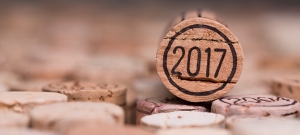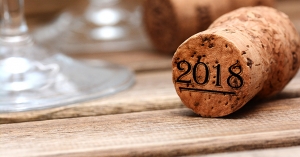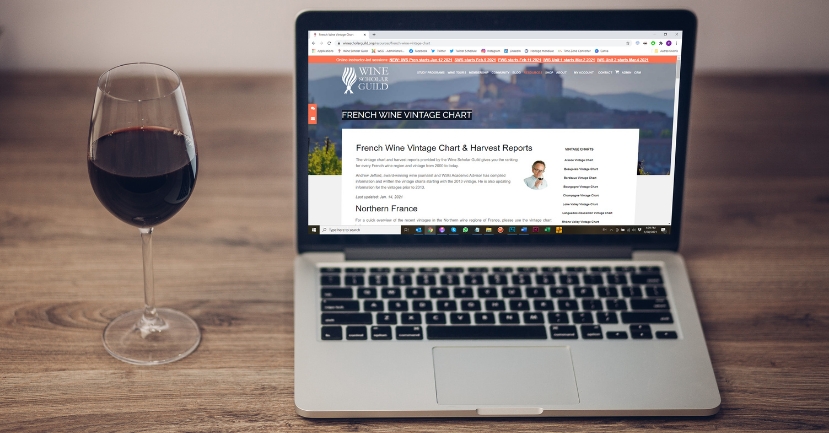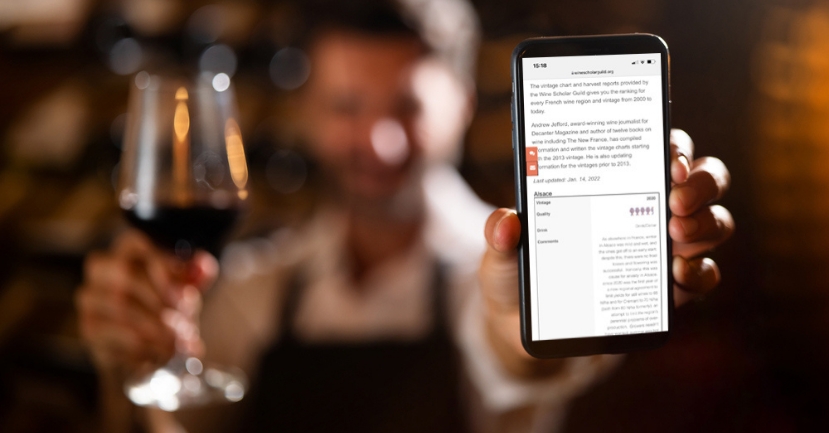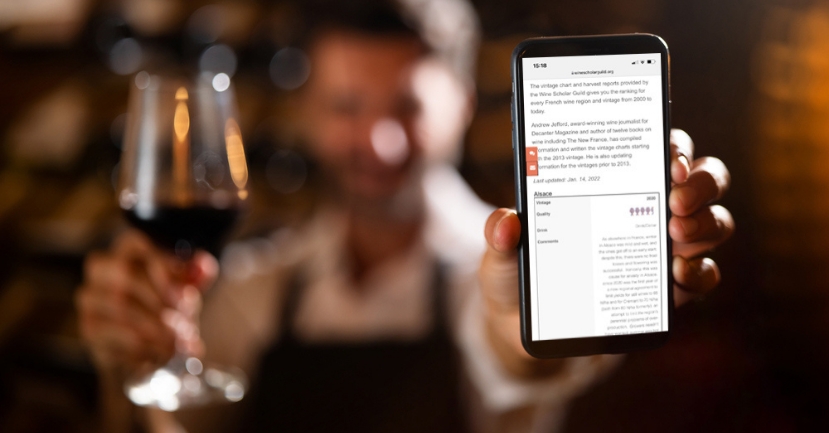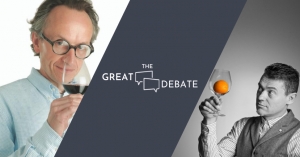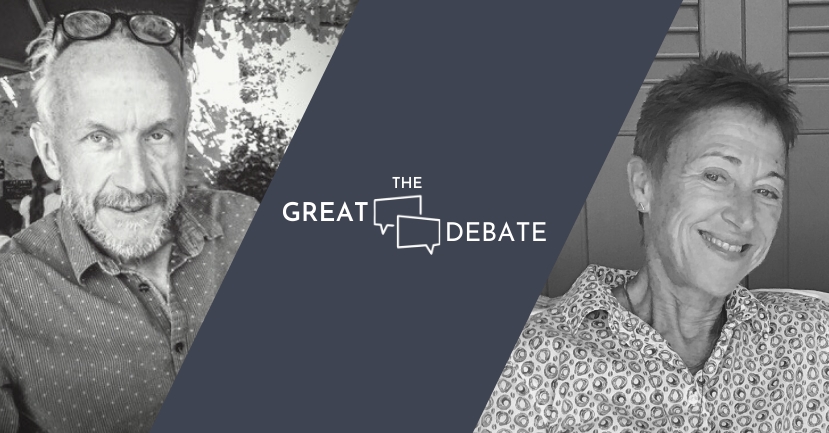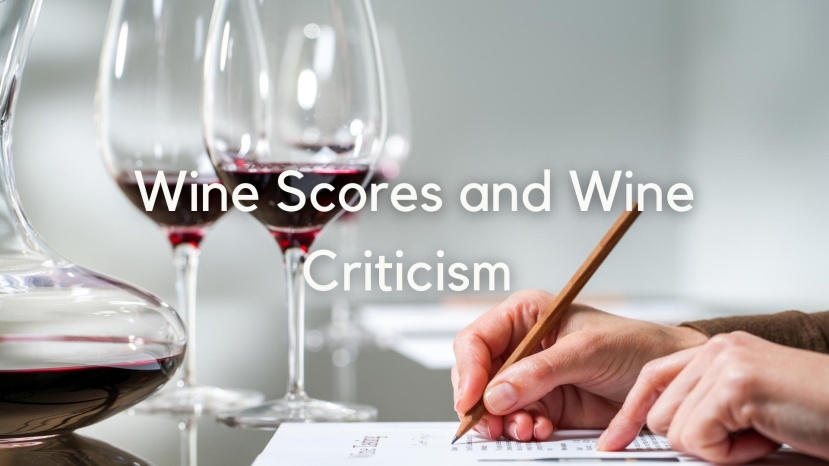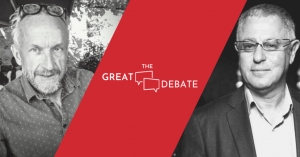BLOG
Andrew Jefford
There’s no wine region I enjoy visiting more than Alsace.
It’s beautiful, of course – and not just the half-timbered houses around which a profusion of flowers seem to float, or the grand hillside vineyards romping up to the forested Vosges mountains, always somehow bigger and more imposing in scale than those of Burgundy. The growers are fascinating characters, too, as if their historical and geographical position, wedged between (and much fought-over by) France and Germany, has given them an independence of thought which eludes those with a more settled position in each wine culture.
Then there’s the wines. It’s commonplace to say that Alsace wines are underappreciated -- but it’s true. For me, no white wine region can offer more diversity and intrigue than Alsace, nor does any single regional range of white wines appeal more to my palate...
Summary:
The famous classifications of Bordeaux (discussed in our Meeting of the Minds webinar on June 22nd) are based on properties – privately owned land entities whose boundaries are subject to change. Of more significance to French wine as a whole, though, are the land classifications based on the notion of the cru or ‘growth’: an entity which rarely coincides, Bordeaux excepted, with private property boundaries and which thus might be considered a
Christophe Tassan is interviewed by Decanter Magazine’s Andrew Jefford about the Rhône Valley and its wines. “I was born in the dining room, in hospitality,” Christophe tells us, which seems appropriate, as this interview took place in a San Francisco restaurant around the corner from The Battery, where he is currently the wine director.
Decanter’s Andrew Jefford talks with us about Burgundy’s “Terroir Dreamland” or the Côte d’Or.
Decanter Magazine’s Andrew Jefford describes the diversity of the Languedoc-Roussillon region’s appellations, geography, and wine styles. Andrew is a Montpellier local, a webinar presenter for the guild, and an immersion trip leader. His enthusiasm for the region and its wines is as contagious as his expertise is vast.
Mastering Bordeaux, a primer with Jane Anson and Andrew Jefford of Decanter Magazine.
Master of Wine Jane Hunt is interviewed by Decanter Magazine’s Andrew Jefford about Tuscany and its wines. Jane has a long, distinguished career in various aspects of the wine trade. She leads the Wine Scholar Guild immersion tours through some of the legendary Tuscan wine estates.
This episode features a conversation with Andrew Jefford, Wine Journalist and Critic, and Olivier Humbrecht, of Domaine Zind-Humbrecht (Zind HUMbrescht) and Master of Wine. Done in two parts, this first half of the interview will first cover Olivier’s accomplished journey as France’s first Master of Wine, and the history and vineyards of the domaine.
This episode is Part 2 of a conversation with Olivier Humbrecht, MW and Andrew Jefford about Alsace. The first part covered Olivier's journey to become France's first Master of Wine, as well as the history and vineyards of Domaine Zind-Humbrecht.
Part 2 picks up with Olivier's philosophy of non-interventionism and biodynamic principles and practices in the vineyard. In addition to Olivier's approach to farming and yield management, we discuss wine making techniques, pressing, long fermentations, and climate change.
Pascaline Lepeltier, MS, discusses the itinerary for the upcoming WSG Study Trip to her native Loire.
In this podcast interview with Decanter's Andrew Jefford, Pascaline discusses the Loire’s best and brightest…all of which happen to be estate visits on the upcoming five-day journey she'll be leading students on in October.
What is France’s greatest undiscovered wine region? Where do you find the greatest value for money in French wine? Where would you look around France to find potential fine-wine quality at affordable wine prices? Three questions … and from me the same answer to each: South West France.
Andrew Jefford, award-winning author and columnist for Decanter Magazine and World of Fine Wine, gives us his insight about the 2017 vintage in France.
Andrew Jefford, award-winning author and columnist in every issue of Decanter and World of Fine Wine, Co-Chair Decanter World Wine Awards; Vice-Chair Decanter Asia Wine Awards, gives us his insight about the 2018 vintage in France.
As October 2018 got underway, wine-growing France let out an audible collective sigh of relief. After shortages due to repeated hail and frost traumas in recent years, 2018 marked a gratifying return to generosity for French wine growers.
Andrew Jefford, award-winning author and columnist in every issue of Decanter and World of Fine Wine, Co-Chair Decanter World Wine Awards; Vice-Chair Decanter Asia Wine Awards, gives us his insight about the 2019 vintage in France.
The beat goes on. The 2019 vintage in France marked five continuous years (since 2015) of warmer-than-average weather. Global warming is with us and accelerating – but so far, for the wine growers of France, it has been merciful.
The vintage chart and harvest reports provided by the Wine Scholar Guild gives you the ranking for every French wine region and vintage from 2000 to today.Andrew Jefford, award-winning author and columnist in every issue of Decanter and World of Fine Wine, Co-Chair Decanter World Wine Awards; Vice-Chair Decanter Asia Wine Awards, gives us his insight about the 2020 vintage in France.
The COVID pandemic made 2020 difficult in France as elsewhere in the world, but France’s winegowers had every reason to feel a sense of relief and gratitude as the year ended. Their future prosperity depends on both the quantity and the quality of each year’s harvest. Every French wine region was satisfied with quantities in 2020 and thrilled with quality. Sales may have been difficult in 2020 with the restaurant trade in abeyance and export markets disrupted, but after the run of good to great French vintages since 2015, no one had cause to complain about stocks.
The vintage chart and harvest report provided by the Wine Scholar Guild give you the ranking for every French wine region and vintage from 2000 to today. The most recent vintage report is published two years following the vintage, i.e. the 2021 vintage report was published in 2023. Andrew Jefford gives us his insight about the 2021 vintage in France. Andrew is an award-winning author and columnist of Decanter and World of Fine Wine, Co-Chair of Decanter World Wine Awards; Vice-Chair of Decanter Asia Wine Awards, gives us
Wine is full of spirited debates, but few can argue that any subject matter generates more intensity these days than natural wine. Should sulphur be allowed or not? Do natural wines reveal terroir better than conventional wines? Has natural wine changed our notion of flaws?
Perhaps most controversial of all is the definition of natural wine in the first place.
These questions are constantly challenging everyone from wine critics and sommeliers to casual students of wine. We decided to bridge the topic with long-time columnist for Decanter and World of Fine Wine, Andrew Jefford, as well as Simon J Woolf, the noted natural-wine writer and author of Amber Revolution: How the World Learned to Love Orange Wine.
Few, if any, moments in wine are more dramatic than when a producer decides it is time to pick fruit. Whether they rely upon a Brix reading, a visual cue from the grape seeds, or the finely tuned instrument of their own palate, making the call to harvest a plot of grapes is a decision fraught with consequence. Get it exactly right and you can have a legendary vintage. Get it wrong, and nothing that follows from the vine to the winery to the bottle can make up for an ill-timed harvest.
“Ripeness is balance at its apogee,” notes Julia Harding, a Master of Wine, wine critic, contributor to JancisRobinson.com, and the co-author of the often-referenced book Wine Grapes. Yet given the frequency with which “ripeness” and “balance” are used as terms in wine discussion, it is worth our time to take a step back and try to find a consensus on what they actually are (or even, if they are the same thing), and the ramifications this may hold for our sensory perception.
As we discovered, defining where that apogee of balance lies can be exceedingly difficult. Balance “resists codification,” says wine journalist and critic Andrew Jefford. “It varies culturally; it varies by individual; it varies by region and by variety.”
For our latest Great Debate, Andrew Jefford and Julia Harding tackle the finer points of ripeness and balance in wine. Their back-and-forth covers a lot of ground: how to decipher balance on the palate, the differences between tasting wine and drinking a wine, putting the value of alcohol levels into context, the role climate change is playing in defining our sense of taste, and even the dangers of allowing one’s intellect to override the sensual response. All of it, Jefford suggests, is in a quest for, what he calls, “resonance.”
While we may not have arrived at any convenient new truisms, in the end, wine’s remarkable ability to reveal the harmony of nature is — at least for now — something we can all agree on.
It is a regular occurrence, even for the most accomplished wine aficionado: a loss of words to describe exactly what’s going on in the glass. Try as we might, the language of wine will always be a tricky landscape to navigate. But, as educators and students of wine, it is a necessity. Whether scratched into a notepad or typed into a report, tasting notes help us commit our experience to memory, and serve as a vital avenue for sensory translation.
Nonetheless, issues abound when it comes to finding a common understanding of these experiences.
In this edition of our Great Debate series, Andrew Jefford — wine journalist and critic — is joined by William Kelley, wine critic for Robert Parker’s Wine Advocate, to discuss a host of issues facing the language of wine and its primary vehicle of communication: the celebrated (or maligned, depending on your point of view) tasting note.
“A good tasting note should communicate as relatably and usefully as possible the character and perceived quality of the wine,” notes Kelley, who reviews roughly 5,000 wines annually from Burgundy and Champagne for his publication. However, he cautions, “it is a very limiting genre.”
By and large, Jefford agrees, but he also calls for “an equivalent of the ‘natural wine’ movement for wine writing” to refresh the possibilities and broaden the perspectives of wine language worldwide.
In the end, this debate is a fascinating look into the process of crafting tasting notes from two of the industry’s most accomplished practitioners. But both admit that there remains plenty of open area for discussion on how to best utilize language to communicate the magic (or lack thereof) in the glass.
Few consumer products in the world are more steadfastly focused on origin than wine. Think of the last great bottle of wine you enjoyed and, odds are, its place of origin featured prominently on the label.
Known as appellations, these defined areas of wine production have fostered a fanatical faithfulness to origin across the industry. Whether it is a Chianti Classico or a Chambolle-Musigny, a Napa Cabernet Sauvignon or a Chenin Blanc from Stellenbosch, how we interpret wine often comes down to how we interpret the place of origin.
While the general concept around the world is the same, the approach certainly is not. In the European sense, appellations define not only the boundaries of a region but the permissible production of wine (including grape varieties, yields, winemaking techniques and more).
“It is better to call non-European systems of this sort ‘Geographical Indications,’ since outside Europe it is generally only a producing zone which is defined,” says wine journalist and critic, Andrew Jefford. “Grape varieties and production methods are left up to the producer, and are a matter of free choice.”
Studying the differences and similarities among appellations, as well as their traditions and modifications, can lead to a lifetime of enjoyment — or frustration.
“The tail is vigorously wagging the dog,” says wine writer Robert Joseph, who is also a producer and wine analyst. He notes that too many places lack the distinction required to make appellations practical, useful and relevant to today’s consumer. Add in the not-so-little wrinkle of climate change, and the very purpose of appellations going forward becomes a rousing debate.
So: are appellations too “rooted to the spot” to be useful in a changing world? Or do they still offer producers the best chance to market their wines on a crowded global marketplace? We sat down with Andrew Jefford and Robert Joseph and hashed it out.
Page 1 of 2
- 1
- 2

